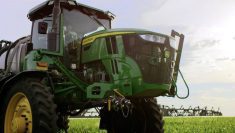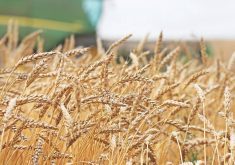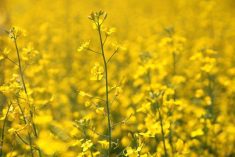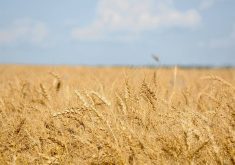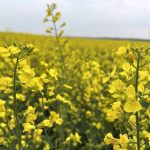Midway through a 50-stop information blitz with 18 meetings across the Prairies in seven days, Farmers of North America (FNA) appears to see a strong show of support for its new project.
The Saskatoon-based ag input buying group reports its farmer members have already bought more than 1,600 "seed capital units" — $1,000 investments in the early stages of a plan to build a nitrogen fertilizer plant in Saskatchewan.
Mike Newlove, FNA’s fertilizer manager, said sales are going well — "actually, a little better than we thought."
Read Also
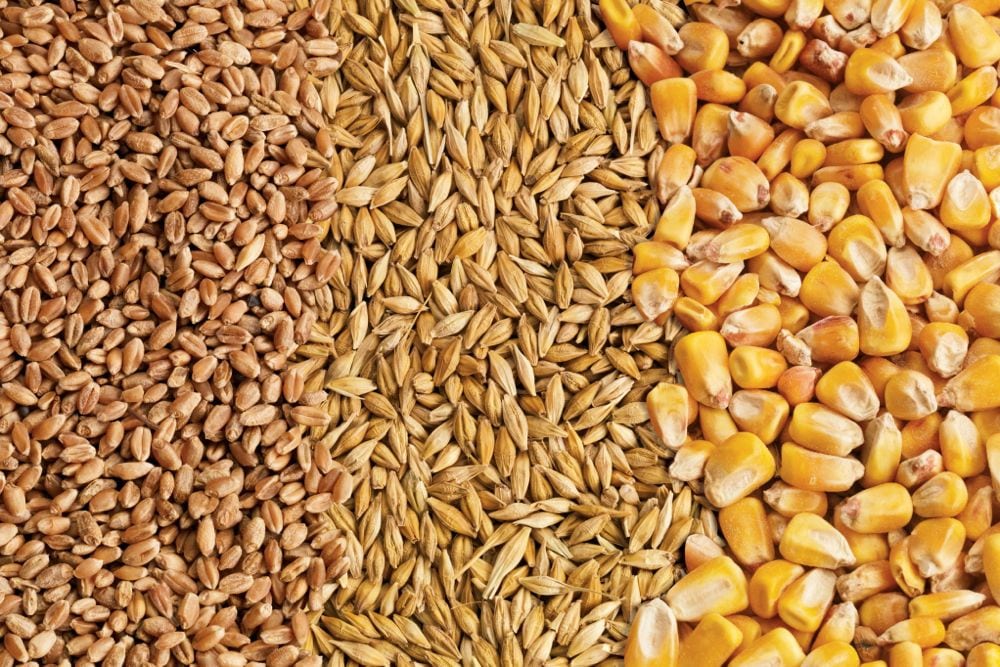
Feed Grains Weekly: Domestic prices remain flat
Although there has been some upward movement in feed grain prices, particularly in Alberta, it’s not domestic demand that’s pushing them higher, said Jim Beusekom, president of Market Place Commodities in Lethbridge on Feb. 19.
About 20 farmers gathered Tuesday at Weyburn, Sask. to learn more about what FNA calls "Project N," the construction of a billion-dollar plant that would produce a million tonnes of nitrogen fertilizer per year.
Project N
By selling seed capital units, FNA will raise the money to keep pursuing this project over the next six months.
The units are only available to farmer members, and each member may only purchase 10, for a maximum investment of $10,000. Farmers who invest now will have preferential treatment when shares are issued later.
FNA has just over 10,000 members across Canada; an annual membership costs $625.
Money raised to date through the sale of these units "is not so much a dollar figure as it is a show of strength," said Bill Martin, FNA’s vice president of grain handing, marketing and transportation.
FNA anticipates 20 to 25 per cent of the $1 billion in equity needed for this project will come from an operating partner — an organization with the expertise to build and operate a fertilizer plant.
FNA said it hopes to raise $400 million to $600 million from Canadian farmers, with the rest of the financing coming from debt and institutional investors. FNA has partnered with BMO to work out the details.
FNA expects this prospectus stage of the project to take about three months. Following that, it would take three years to build a plant.
If the project does not go ahead after this six-month exploration, farmers’ investments in seed capital units will not be completely lost. Project N has been structured as a limited partnership, so losses will flow to individual farmers for tax purposes.
Also, FNA said it’s providing a $600 guarantee. If the project doesn’t go forward, FNA members can use $600 of their $1,000 investment toward future membership fees or purchases.
Martin cautioned FNA members at the Weyburn meeting, "This is pure risk capital. There are no guarantees that we are going to be able to pull this off."
Details
FNA has not yet worked out all the details, and spokesmen aren’t yet able to share certain information, such as an exact location for the proposed project, or the name of the potential operating investor.
As yet, there are no firm answers to questions about logistics and distribution FNA members raised at the Weyburn meeting.
Crowded market
FNA is one of a handful of farmer-driven associations looking at building fertilizer plants in North America to take advantage of low natural gas prices and high nitrogen fertilizer prices.
Others include CHS Inc., a major U.S. farmer cooperative with plans to build a plant in North Dakota; the Indian Farmers Co-operative, investing in a plant in Quebec; and the North Dakota Corn Growers Association, evaluating three U.S. sites.
"We’re not that concerned about long-term supply," said FNA’s Martin. "There’s a long-term shortage in the North American market."
— Leeann Minogue is editor of Grainews at Griffin, Sask.
Related stories:
Coop Federee, India ag co-op plan Quebec N plant, Oct. 9, 2012
FNA seeks farmer investment for N fertilizer plant, Sept. 27, 2012
CHS plans to build N.D. fertilizer plant, Sept. 12, 2012



